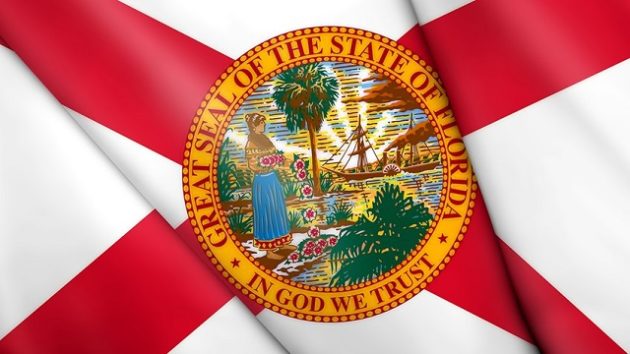E-Verify and Anti-Sanctuary Bills Filed In Florida
In the space of roughly a week, bills have been filed in the Florida Legislature to require mandatory E-Verify by all employers, and to prohibit sanctuary policies by local governments and state agencies. The Sunshine State’s lawmakers look to be gearing up for a productive session when they convene on March 5, and these bills could be considered during interim committee weeks already scheduled for January and February.
E-Verify
On December 11, Representative Thad Altman (R-Melbourne/Indialantic) filed House Bill (HB) 89. The bill would:
- Require all private employers to register with E-Verify and use it to verify that all new employees hired after January 1, 2020, are legally authorized to work in the US;
- Require all state agencies, local governments, public contractors and public subcontractors to register with E-Verify and use it to verify that all new employees hired after July 1, 2019, are legally authorized to work in the US;
- Create an enforcement process for private employers, run by the Department of Economic Opportunity (DEO), where employers lose their business licenses for employing illegal aliens;
- Require DEO to report illegal alien employees to Immigration and Customs Enforcement (ICE);
- Ban public contracts with contractors or subcontractors who don’t use E-Verify; and
- Terminate existing public contracts if contractors or subcontractors employ illegal aliens or don’t use E-Verify.
“I think it’s fair and not onerous to businesses that want to follow the law … We are sending a clear message that if you want to do business in this state, you must employ legal U.S. citizens and residents,” Altman said of his bill. Unsurprisingly, the far-left Miami New Times almost immediately ran an op-ed condemning the bill, the E-Verify program generally, and Altman personally as anti-immigrant and racist.
But not to be dissuaded by such rhetoric, a week later, on December 18, Senator Aaron Bean (R-Jacksonville/Fernandina Beach) filed Senate Bill (SB) 164, which with very minor differences mirrors Altman’s bill.
A proposal to put mandatory E-Verify on this past November’s Florida ballot had failed in the Constitutional Revision Commission (CRC) back in April after a coalition of business groups bombarded the CRC at the last minute with unfounded horror stories about how it would impose huge costs and destroy the state’s economy. This was despite the fact that E-Verify is free to use and almost always instantaneous, and also despite that, according to FAIR’s research, in 12 out of 15 states that adopted it since 2008, the unemployment decreased more than did the national rate.
But on the campaign trail in July, now-Governor-Elect Ron DeSantis (R) tweeted, “Cheap foreign labor is not an excuse to let lawlessness prevail in the sunshine state. We want people who come LEGALLY!” He can be expected to strongly support the new bills, so with backing in both chambers and the Governor’s Mansion, prospects for E-Verify in Florida appear good.
Anti-Sanctuary
On December 18, Sen. Joe Gruters (R-Sarasota) filed SB 168. The following day, Sen. Bean filed SB 170. The bills are identical and would:
- Define and ban sanctuary policies, both by local governments and state agencies such as public universities;
- Require local governments and state agencies to honor immigration detainers;
- Require local governments and state agencies to review available information on the immigration status of people they’ve arrested, and report them to ICE if the information indicates they’re an illegal alien;
- Create a duty to report sanctuary policies by officers and employees of local governments and state agencies, and give them whistleblower protection against adverse employment action if they report their own employer;
- Allow anyone to file a complaint about a sanctuary policy;
- Create an investigation and enforcement process for both local state attorney’s offices and the attorney general, resulting in fines for sanctuary governments and agencies and a potential for removal from office for “sanctuary policymakers”; and
- Allow people to sue a local government or state agency for damages if an illegal alien injures or kills someone due to a sanctuary policy.
A companion bill has not yet been filed in the House but can probably be expected shortly.
Sen. Bean sponsored SB 308 in the Senate last year to do the same thing. Sen. Gruters is a longstanding supporter of Governor-Elect DeSantis, “has relationships with … [DeSantis’] team,” and is being backed by DeSantis to be the next Chairman of the Republican Party of Florida.
As a candidate, then-Congressman DeSantis promised, “[a]s governor, this is what I am going to do: there are going to be no sanctuary cities in Florida,” and even committed himself to removing public officials from office for supporting sanctuary policies “if I’m able to do so.” These bills are the means to fulfilling those promises, so they are likely to garner his strong support.
Anti-sanctuary bills have now passed the House by wide margins three years in a row, only to die in the Senate without so much as a full committee hearing. But with such clear and strong support so far in advance of session, there is good reason to expect 2019 may be the year that changes.
COLUMN BY
David Jaroslav
EDITORS NOTE: This column with images is republished with permission. © Copyright 2018 Federation For American Immigration Reform, all rights reserved.



Leave a Reply
Want to join the discussion?Feel free to contribute!